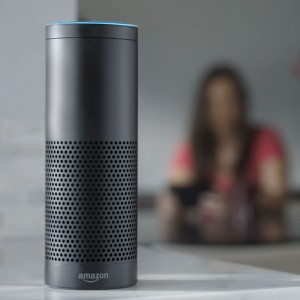How Virtual Voice Assistants Can Extend the Reach of Your Healthcare System
// By Lisa D. Ellis //
 Imagine if all of your older and chronically ill patients had personal assistants to help them monitor their vital signs, answer pressing health questions, and remind them to take their medicines. While this scenario may sound ideal, it’s also quite an unrealistic goal to expect to accomplish for an entire population. But the newest generation of voice-activated virtual assistants, or personal intelligence agents, may be able to fill a similar niche in a timely and cost-effective manner using a software program that can be tailored for different situations.
Imagine if all of your older and chronically ill patients had personal assistants to help them monitor their vital signs, answer pressing health questions, and remind them to take their medicines. While this scenario may sound ideal, it’s also quite an unrealistic goal to expect to accomplish for an entire population. But the newest generation of voice-activated virtual assistants, or personal intelligence agents, may be able to fill a similar niche in a timely and cost-effective manner using a software program that can be tailored for different situations.
Tapping Into a Growing Trend
There’s been growing popularity of voice devices and intelligent assistants like Amazon’s Echo and Alexa, Google’s Home, and Apple’s Siri, which all work in a similar way to provide voice-activated responses to general requests for information. There’s also been an explosion in the personal sensor field, with a host of fitness trackers and other wearable devices on the market today that can measure things like activity levels, pulse, and blood pressure. Therefore, it should come as no surprise that the health sector is now getting into the game by extending the reach of these tools in innovative ways.
In fact, these capabilities, coupled with the emphasis on population health, has prompted a growing number of companies to turn the existing devices into automated “case managers.” As such, these tools can help increase patients’ engagement in their own health and can hopefully also help them head off any serious complications.
This content is only available to members.
Please log in.
Not a member yet?
Start a free 7-day trial membership to get instant access.
Log in below to access this content:

